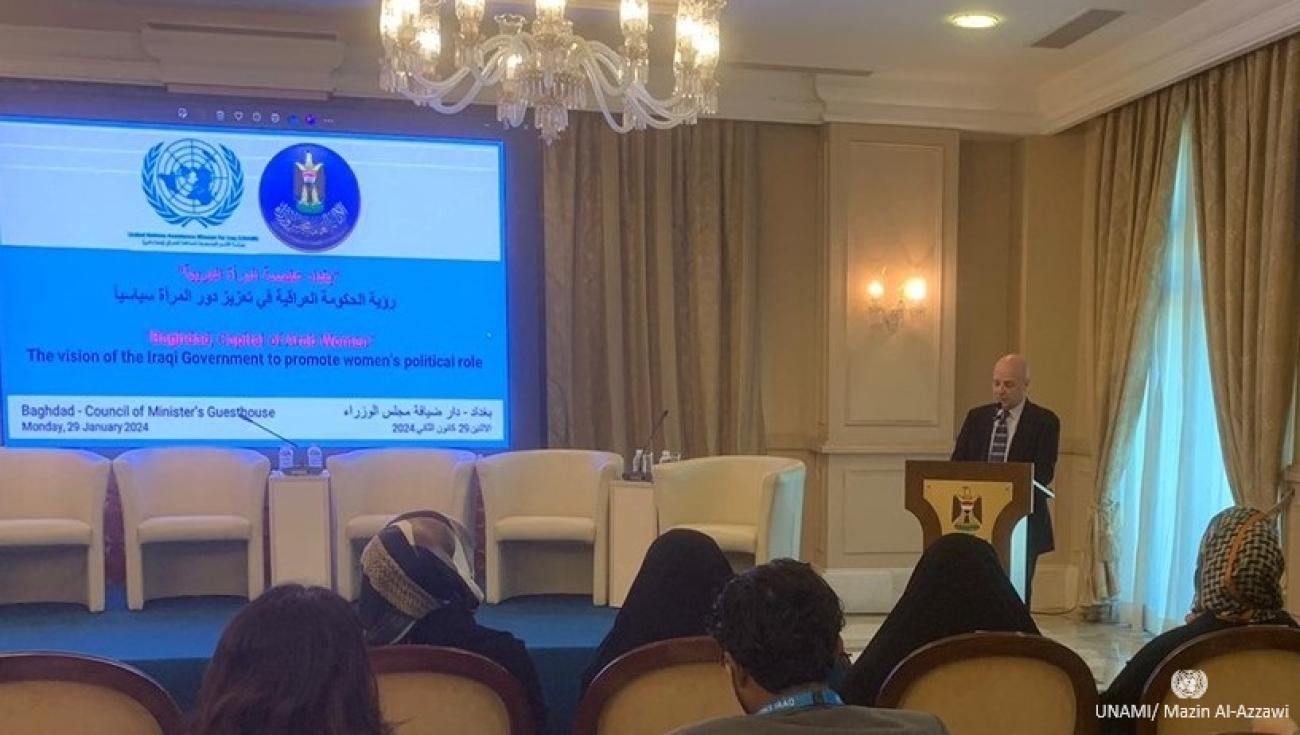Remarks by Claudio Cordone, Deputy Special Representative of the UN Secretary-General for Iraq for Political Affairs and Electoral Assistance | Conference on the Vision of the Government of Iraq on the Political Role of Women

Prime Minister’s Guesthouse, Baghdad, 29 January 2024
Distinguished Participants,
Ladies and Gentlemen,
I am honored to be speaking at this event on “The Vision of the Government of Iraq on the Political Role of Women”, which is being held after the successful conduct of the Governorate Council elections last December.
According to the elections final results announced by the IHEC, women won 76 seats out of a total 285 seats – with 75 winning as part of the 25% minimum quota prescribed by the Constitution and the law, and one woman winning under the quota for minority seats. It is important to emphasize that the 25% quota is a minimum, and that we should continue our efforts to ensure that it is a floor and not a ceiling.
We would like to commend the Independent High Electoral Commission (IHEC) and the High Committee on Support for Women’s Participation in the Governorate Council Elections for their efforts in promoting women’s participation in the elections. We welcome the decision of the General Secretariat of the Council of Ministers to make the High Committee for Support for Women’s Political Participation a permanent committee. This will enable sustained attention and the prioritization of women’s political empowerment beyond elections.
In this context, I wish to draw attention to a joint report issued today by UNAMI and the National Directorate for Iraqi Women. This report reflects the results of 12 consultation sessions conducted with local authorities, civil society organizations, former parliamentarians and Governorate Council members, youth, and women, to identify challenges and ways to strengthen women’s participation in politics.
The recommendations of the report include providing training on political processes to women already in politics or aspiring to enter politics; encouraging media to avoid bias against the role of women in politics; adopting security measures such as the hotlines for complaints during electoral campaigns, as was the case in the last Parliamentary and Governorate Council elections; and urging political parties to promote women in leadership positions. Today, as we publish this report, we encourage all to consider its recommendations and build on existing good practices to support women’s participation in politics.
Before concluding, I wish to refer to the debate on the word “gender” that has taken place in recent months, often fueled by misunderstandings. The main concern in this regard that we have heard from many women across Iraqi society is that this debate can stifle good activities on behalf of women’s rights. Yet women’s rights are protected by the Iraqi Constitution and the law. Iraq should take pride in pursuing an agenda which supports them. We see this as one of the main tasks of the National Directorate and the High Committee, and we look forward to continuing working with them.
In conclusion, as in many other societies in the world, the struggle for affirming the equal rights and opportunities for men and women, including in the realm of political participation ad representation, is not an easy one. We welcome Iraq’s commitment to this noble undertaking, and remain steadfast in our own commitment to support the Government and people of Iraq in the pursuit of this objective.
Thank you.



